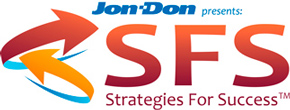 As a business owner or manager you can easily overlook the influence your actions have on the behavior of your people. Simply by virtue of your title you serve as the model for how those in your employ should act. So lets talk about that word “respect”. (In my very best Aretha Franklin wail!)
As a business owner or manager you can easily overlook the influence your actions have on the behavior of your people. Simply by virtue of your title you serve as the model for how those in your employ should act. So lets talk about that word “respect”. (In my very best Aretha Franklin wail!)
Everyone talks about showing respect to others. (And of course we desire respect from others.) BUT how often do we fall short in displaying respect? And yes, sadly when we fail to show respect our employees likely will model our bad behavior.
This point was vividly brought home to me at a recent event where I witnessed a very successful business executive demonstrate respect to those with whom he was interacting. In spite of his accomplishments and considerable wealth many of the people around him didn’t know who he was. So there was nothing to be gained on his part by “acting” respectful. Yet it was clear that being respectful to others is just part of who this very successful individual is. As I watched him display this “uncommon respect” I began to analyze my own dealings with others.
Showing respect doesn’t only mean opening doors for people or assisting them with their coats. (Although these are always nice gestures.) Showing respect includes our simple, everyday actions. For example…
Respecting people’s time by being “on time” is a fundamental element of showing respect. Being punctual for work; being on time for appointments; being prompt for meetings; anything having to do with a fixed starting time. Being late sends a very clear message to everyone else involved that their schedules and priorities are far less important than your own!
Ending appointments and meetings on time is just as important as starting them on time. (And yes, this includes respecting the time of your employees!) When you overstay your welcome, or let meetings run late, you show the same lack of respect for other people’s time as it does to show up late to begin with.
NOTE: When selling your services keeping your conversation “on track” shows respect for your prospect’s time. So structure your “customer interview” (remember they should be talking more than you do!) with our SFS Commercial Carpet Analysis Form. (CCA) Download your free CCA Form HERE.
Of course, even the best “sales conversation” must end. And knowing when to excuse yourself requires being sensitive to your customer’s buying signals. My “cut to the chase” observation? As in so many things “less is more” when it comes to sales calls! (If you catch your prospect checking their watch or their eyes drifting to their computer screen you are already too late!)
Being “present” is another way to show respect. This simply means being mentally engaged in the conversation you’re involved in at the moment. Admittedly this can sometimes be tough. With so much “instant communication” today it’s easy to get distracted from the conversation at hand. But this lack of focus shows an enormous lack of respect to the other person(s) you’re engaged with. (Steve Toburen calls this “Creating a Negative Moment of Truth“.)
For example, I recently witnessed a speaker at a seminar pause, pull his phone out of his pocket and check an incoming text in the middle of his presentation! How could that message possibly be more important than the combined investment the attendees in his audience made by being there for his presentation? What message did they receive from his careless act?! Yet how often do you convey a similar message when you check emails or text messages while you are in a conversation with someone else? Although the scale may be different the message is the same- “I don’t respect you!”
A subset of “being present” is showing respect to others by understanding their point of view. Although you may not agree with them working to understand the other person shows respect. (I’ll address this vital part of showing respect in my next SFS blog post.) Just remember, in order to understand another person’s point of view you must first LISTEN! And yes, listening takes place best when our ears are open, our mouths are closed, our fingers are still AND our smart phones stay in our pocket!
Chuck Violand (more about Chuck)
SFS Instructor
CEO Violand Management Associates
